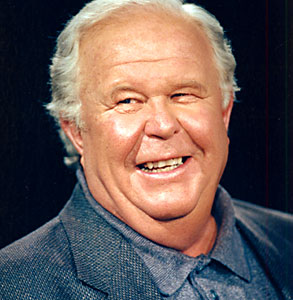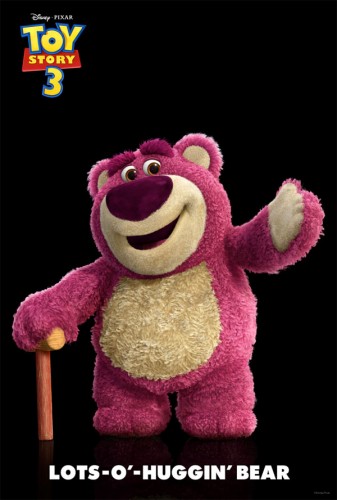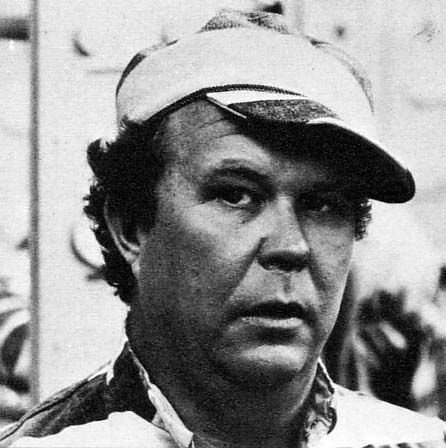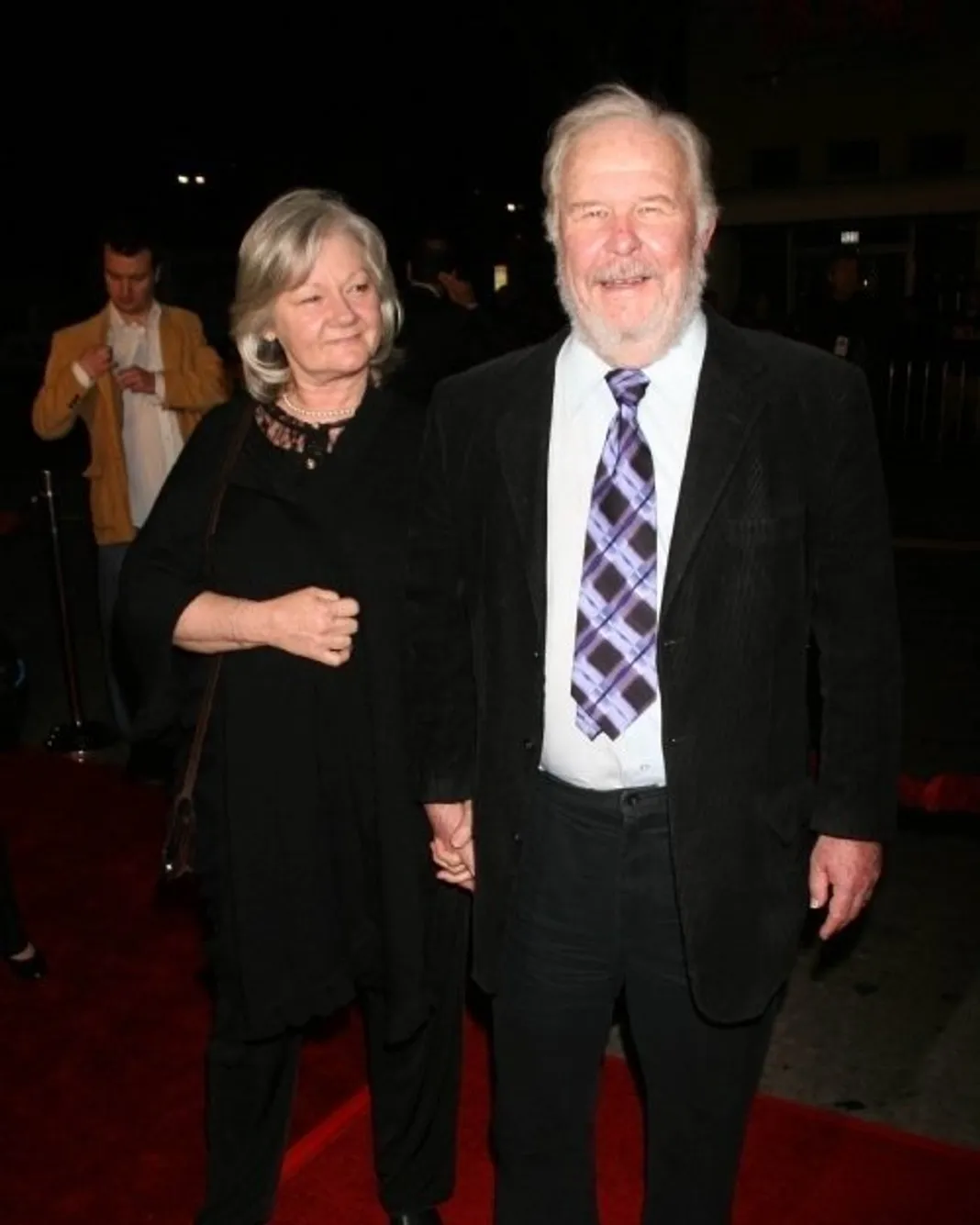 Every great film needs a great hero and villain. With Toy Story 3, fans were lucky enough to have a host of heroes to save the day, but just one really good bad guy to balance out the narrative. That antagonist, the misunderstood Lotso’ Huggin’ Bear, was voiced by screen veteran Ned Beatty, an Oscar nominee who was once dubbed “the busiest actor in Hollywood” by Variety.
Every great film needs a great hero and villain. With Toy Story 3, fans were lucky enough to have a host of heroes to save the day, but just one really good bad guy to balance out the narrative. That antagonist, the misunderstood Lotso’ Huggin’ Bear, was voiced by screen veteran Ned Beatty, an Oscar nominee who was once dubbed “the busiest actor in Hollywood” by Variety.
Though Toy Story 3 marks the first time that Beatty has lent his voice to an animated character, the Kentucky-bred thespian is no stranger to blockbuster hits. Most will probably remember him as Lex Luthor’s bumbling sidekick Otis in Superman: The Movie and it’s sequel, but additionally Beatty has worked on some of the greatest films of all time, including Deliverance, All The President’s Men and Network. I was very fortunate to get to speak with him last week to celebrate the home entertainment release of Toy Story 3 (read my review here), where we talked about the thrills of the job, Johnny Depp, the most memorable moment of his career and much more! Read on for a full transcript of the interview and make sure you get your hands on Toy Story 3 today!
It’s a real honor talking to you. Honestly, I have to say I’m a bit fluttered.
I have to tell you, it’s no big deal. (laughter). I’m very lucky and have eight kids, and they’ll all tell you, it’s no big deal.
Of course you’re a humble man, but people like me certainly consider you a big deal, you know?
Well, let me make one small correction. Toy Story 3 is a big deal. I’m not a big deal (laughs).
You’re both big deals.
Oh good. Well, I’ll tell you. We finally got to see it almost towards the finish of it, and quite a few members of the cast and I were losing it towards the end with all those tears and that stuff. And I just was so proud to be in that film. I can’t even begin to tell you.
It really is a fantastic picture. Tell me, what was going through your head when you got the call to get involved with the project? Tell me about the process that got you involved.
You know, I had never really done anything like that before so that was sort of interesting, just knowing that I was going to basically talk to people about getting together on this. And I think they were giving me an offer, I believe they were, but at the same time I felt like well, they have a right to change their mind if they don’t like what I’m doing. But it was great fun. I once had a director from the Bronx, and he had a really heavy Bronx accent you know, and he said to me, [in a heavy accent] “Every time we think of something to try, you want to do it immediately. You’re such an instant person.” So the truth of the matter is I’m kind of an instant person. But I love the idea that you can do a line and do it again and again and then have the director say, “Let’s try so and so,” and it’s like, “Okay, let’s try that.” I really, really enjoyed that part of it.
 I’m glad you put the Bronx accent on that one because I was going to ask you to do it, but I didn’t have to.
I’m glad you put the Bronx accent on that one because I was going to ask you to do it, but I didn’t have to.
(laughs) Well, we toyed around with it a lot because one of the things they mentioned to me was they heard about my performance in Cat on a Hot Tin Roof, when I played Big Daddy, and they were thinking they wanted something like that. So I started giving them something like Big Daddy [for his character Lotso], he’s got a bit of that in his voice. And so I was sort of giving them that and the director was like, “Who is this guy?” So we talked around and we decided we wanted to try a little bit more uptown New Orleans and so I got about as close to that as I could to that.
I’m interested in the development of the character. Does the amount of input you have on your character vary from director to director? Or is it a different process creating a character in a film where you’re shooting the action and you’re physically there, as opposed to an animated film where we’re just hearing your voice.
Yeah, exactly. I think it has a lot to do with how you were brought up in the business, where you’re training was and where you worked first. And the type of people you worked with first. I always loved the idea of improvisation and I’m old enough to go back to when we really did a lot of that. During the ’70s, many films were improvised and you always felt like you were going to get in trouble if you said a line that was in the script. You were supposed to be making up all this stuff (laughs). But I love this idea that you get the idea and you just go ahead and do it. You try it. In other words, you don’t edit it. You don’t put a lot of curly Q’s around it. You don’t ask a lot of questions about it. You just do it. And I really enjoyed that. And I think the director [Lee Unkrich] and myself had a good time doing that together.
He’s a great guy. I was lucky enough to interview him about a month back.
Oh yeah. He’s great, isn’t he? And you know, if we got tired, we talked about our kids you know.
Always great conversation. So this wasn’t your first time working with Tom Hanks. You also appeared in Charlie Wilson’s War. What’s it like working with him? Did you get to record any lines with the cast while you were working or was everyone recorded separately?
I only saw one actress, and I can’t think of her last name right now. Her first name is Estelle [Harris], and she plays Mrs. Potato Head. And I did a few things with her because the scene called for that. It was when I took her mouth off. That was a mean moment, boy.
But no, I didn’t get to see Tom at all. That’s what’s sort of a funny aspect about it because you do share a lot. But Lee, and I think maybe one of the hardest jobs in our business I’ve ever seen is to direct a bunch of characters like that and work as singles. And you have to make it all mesh together. He’s extremely good about it and the best thing about him is he’s not afraid to ask. He goes for whatever.
You mentioned that part of the reason you took this job was because you’d never really done it. You wanted something new. But, I’m guessing right before or right after taking that, you were interested in doing another one because you’re in Rango. So tell me what got you interested in lending your voice to films like that.
Well, Rango is interesting because we did try to do a little filming for the animators using video. It was so interesting because it was much more difficult for all of us actors, including Johnny Depp — who’s very adept, he really is, I wish I knew him better and it turns out we grew up about 80 miles from each other in Kentucky, and I think he’s very special — but we all had trouble with it. We found that once the camera started rolling, because we were so used to reading the dialogue, we would go up on the lines. It was really amazing, but yet they felt like they got what they wanted sometimes. They got a lot of actors stomping their feet saying “Oh, damnit.” It was just so easy to lose those lines once you started acting and you hadn’t rehearsed them that way. It was very interesting. I can’t wait to see Rango. I’ve spoken to one person in the media about it and I asked how much they got to see, and they said 20 minutes. And I said, “They showed you 20 minutes of it?” And he said, “Yeah.” So I asked if it was good and he said, “It’s very strange.”
Well, a lot of people said that about Johnny Depp at the time of Pirates’ release, and we all know how that one turned out.
Exactly.
Now I have to ask, even though I know it’s off topic, what are your thoughts — now that we know there’s a new Superman going into production shortly — what are your thoughts on who should play, or what type of actor, should get in the spandex? What direction would you like the character to go?
Boy. I was really caught off guard. I was traveling through Metropolis, Illinois where they celebrate the Superman comics and films and television show. And I didn’t know there was a television show which was built around all the characters when they were younger [The CW’s Smallville]. And I’m sitting there and there’s a really lovely girl who’s sitting next to me and she says, “Did you know you worked on the first film I was ever in?” And I said, really? And she started telling me about this student film I made with a friend of mine while a student at USC. And he made this really intersting film called 120 Bolt Miracle, and I played a guy who came to fix electricity in a house. And long story short, she was in this film. She was eight years old.
 And who was she?
And who was she?
Well, she must have been the female lead. The love interest. But she was really sweet and I told her I didn’t know anything about her show and I felt so stupid because we were sitting up there answering questions. And of course, they all had questions for her. And she said, don’t worry about it, it is what it is.
But I don’t know about Superman. That was a special experience for me. Richard Donner, God bless his heart, he made me eat in every scene. Every time the camera rolled and I was near it, I had to be eating something. And he had more fun with my character than even I did. He loved that character for some reason. I don’t know. That was a special experience and I would’ve liked to have hung on a little longer, but I don’t know.
It’s great as it is. The banter between him and Lex makes that film work on so many levels other than “a superhero movie”. It helped fill out the narrative so much.
You know what, it was in the same neighborhood of thrills as seeing Toy Story 3 for the first time and seeing Superman for the first time. It was really enlightening. I can’t think of another word.
That’s a good word.
(laughs) It was like it lifted you up somehow. The first time they flew together, I just was like, I can’t handle this. It was too much.
Just one more question. Looking back over your 40+ years in show business, can single out one production, one cast member, one director that you have fondest memories of, and what/who is it? And to complement that, what’s the biggest lesson you’ve learned?
Whew (laughs). I have an incredible soft spot for Network and because I got nominated [for an Oscar]. Getting nominated wasn’t such a big deal, but I thought that Paddy Chayefsky won the nomination when he wrote the speech that I got to give. The nomination was there already. I told him that. I had to go audition once and I had to go audition again and I told them, this is an Academy Award thing. I don’t usually talk in those terms, but look at this speech. I’ll do anything to give this speech. I’ll do anything that you want done. And then I pulled a little trick on them. I did some selling in my time because a lot of times actors can’t get jobs because they don’t have good work records. But sometimes, if you’re an actor and you can talk, put out a story, they’ll let you sell on commission. So I sold a lot when I was younger. So I looked at them and said, look, “I don’t want to do this to you, but you got to give me an answer before I leave here today. I’ve got another job that’s more money, but it’s not anywhere near as good as this job. And I want this job. But you’ve got to come up with an answer.” And I just walked into the other room and shut the door. And they hired me. (laughs) So, selling is good.
And it worked out for the best, didn’t it?
It sure did, but they knew what I was doing. One of the throwaway lines that the character has is when he’s trying to tell him that he was the head of the company, the head of the company, the head of the company. He says, they tell me, I was a very good salesman, that was his line. That’s why I leave the clothes on and say, now or never, now or never.
Great stories. Thanks again for the time. I hope to see many more Ned Beatty films in my time.
Why, thank you.


